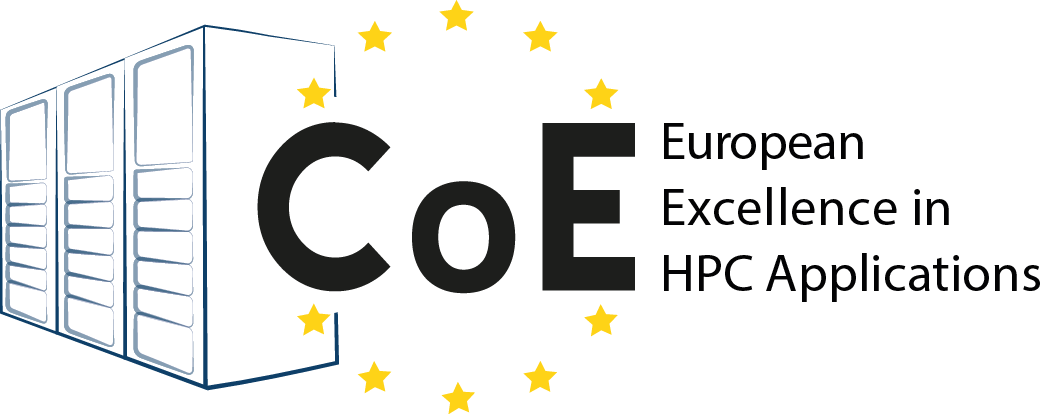An AiiDA (Automated Interactive Infrastructure and Database for Computational Science) plugin migration workshop will be held at EPFL Lausanne, Switzerland, aiming at collecting about 20 participants. AiiDA is in the process of preparing the AiiDA code towards the 1.0 release, in which we have recently introduced python 2 + python 3 support (already available in the 1.0 alpha releases).
This 3.5-day tutorial is designed to get Master students, PhD students and Postdocs from the field of computational materials science started with writing reproducible workflows. Participants will be introduced to the state of the art in workflow management and high-throughput computations by experts in the field, and gain in-depth hands-on experience using a tool that they can directly apply to their own research.
CAPRI (Critical Assessment of Predicted Interactions) is a community wide experiment designed to test methods for predicting the structure of macromolecular complexes based on the known structure of their components.
The meeting program will include an overview of the performance of protein docking and scoring procedures obtained for targets evaluated since the spring of 2013. It will also feature several plenary lectures by prominent scientists, as well as talks by the best CAPRI performers, and/or groups developing innovative computational approaches.
This tutorial focuses on training the participants in using our all-electron FLAPW DFT code FLEUR (www.flapw.de) and associated codes like Spex-FLEUR, a code for many-body perturbation theory, and G-FLEUR, an embedding code. In extension to similar previous tutorials it also addresses the usage of FLEUR within the AiiDA infrastructure to build automatic work-flows applicable to materials screening applications.
The School is supported partly by MaX CoE.
This is a three day workshop, with 1.5 days of presentation, and 1.5 – 2 days of joint analysis/hacking. Dyamond (DYnamics of the Atmospheric general circulation Modeled On Non-hydrostatic Domains) is an intercomparison study with Global climate model that can explicitly resolve the major modes of atmospheric heat transport (convection-permitting resolution; 1-5 km). Models participating include: ICON (2.5 and 5 km), NICAM (3.5 and 7 km), FV3 (3.25 km), SAM (4 km), MPAS (7 .5 km), IFS-H (4 and 9 km).
OpenIFS is an ECMWF activity that provides an portable version of the IFS forecast model for use in research and education. This user meeting brings together scientists, current and prospective users of the ECMWF OpenIFS model from universities, national meteorological services and other organisations to discuss topics on the workshop theme. The workshop will start with a training on the OpenIFS model on Monday, followed by the scientific programme from Tuesday to Friday.
The workshop is partly funded by the project ESiWACE.
The EGU General Assembly 2019, taking place in Vienna (Austria) on 7–12 April 2019, will bring together geoscientists from all over the world to one meeting covering all disciplines of the Earth, planetary, and space sciences. EGU will host a session on “High resolution weather and climate models on large supercomputers”, partly organised through ESiWACE members.
UKCOMES, CompBioMed, and VECMA are hosting a meeting on “HemeLB: cardiovascular modelling and simulation in UKCOMES” centred around lattice Boltzmann simulations for blood flow. As part of the meeting, researchers at UCL will introduce and demonstrate the use of their HemeLB application and the progress they have made towards simulating the whole arterial tree. There will be talks from other users of HemeLB in addition to alternative LB applications including Palabos and DL_MESO.
The meeting takes place on 29-30 May 2019 at UCL in London.
The CompBioMed All-Hands Meeting will be organised at University of Oxford and will take place over three days. There will be an external facing meeting on 29th April, inviting all Core and Associate Partners, colleagues from related projects, and any other interested parties. There will also be an internal meeting and the opportunity to Work Package Leaders (WPLs) to gather with people for in-person meetings to discuss vital issues.
The meeting objectives are the following ones:
• High-level F2F technical meeting involving workpackage leaders (WPLs), task leaders (TLs) and flagship code lead developers (LDs) to coordinate the different tasks in WP2, WP3 and WP4.
• Explain the first code audit round strategy (T2.1).
• Specify the flagship code requirements for T2.2 (single-node optimization), T2.3 (multi-node optimization) and T2.4 (I/O bottlenecks), and identify who and how will perform each optimization task.
• Specify the requirements of flagship codes and Pilot Demonstrators for T3.4 (workflow manager). This includes the ChEESE definition of workflow(s) and the identification of generic workflow components shared by different pilots and future services (e.g. data acquisition and pre-process, interaction between multiple binaries within a job, task/job dependencies, scheduling and allocation of computational resources, fault tolerance, code restarting, post-processing, etc.).
The meeting will take place at HLRS in Stuttgart, Germany, on the “Vaihingen Campus” of the University of Stuttgart.
